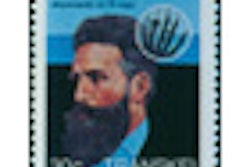Although officials at Exeter Hospital called Kwiatkowski an "extremely good cardiac technologist" up until the time he was arrested, Kwiatkowski had a checkered résumé. In 2008, he was fired from a job in the interventional radiology department at the University of Pittsburgh Medical Center (UPMC), where he was placed through an assignment with Maxim Staffing Solutions.
Kwiatkowski was terminated in May of that year, just two months into the assignment, after he was found in an area where he wasn't assigned, according to hospital spokesperson Gloria Kreps. Kreps said that UPMC notified Maxim of his termination, but she did not specify whether the state's health regulators were informed. State health authorities said they had no record of any disciplinary actions against Kwiatkowski in the state, and a spokesperson for Maxim declined to comment, citing the company's internal investigation.
More concerning was an episode that occurred in Arizona in 2010. Kwiatkowski had been assigned by staffing firm SpringBoard to Arizona Heart Hospital in April of that year, but he was fired for an alleged "drug incident," according to a memo sent to the state Medical Radiologic Technology Board of Examiners (MRTBE) by Arizona Heart Hospital administrators.
|
The Steven Beumel case David Kwiatkowski is not the first radiologic technologist to be charged with infecting patients with hepatitis C following alleged drug diversion. In 2010, Steven Beumel was arrested and charged with tampering with a consumer product after stealing fentanyl for his own use and replacing the syringes with contaminated ones while working in the cardiac cath lab at Mayo Clinic in Jacksonville, FL. In a case that parallels the Exeter Hospital case, federal and state investigators and hospital officials for three years had been investigating a series of hepatitis C infections in patients treated at the cath lab. Authorities estimated that five patients contracted hepatitis C, and one ultimately died. Beumel pleaded guilty to charges in the case in May, and he faces a maximum penalty of life in prison. Like Kwiatkowski, Beumel's name appears on the ARRT's list of technologists whose credentials have been sanctioned; he was sanctioned in November 2010 after being fired from Mayo Clinic in August of that year. |
The memo states that on April 1, an employee opened the door to a restroom to ask Kwiatkowski a question and found him lying on his back in the bathroom stall, unresponsive. As he tried to revive Kwiatkowski, the employee noticed a 5-cc syringe and needle floating in the toilet, and the syringe had a blue label that identified it as fentanyl, according to the memo.
Kwiatkowski then regained consciousness and said, "Shit ... I am going to jail," the memo states. The employee told Kwiatkowski "not to worry about that right now"; in response, Kwiatkowski said, "How can I not worry about it?" the memo states. He then sat up and threw something into the toilet, and flushed it with the syringe and needle, according to the employee's statement. Kwiatkowski was then taken to the emergency room.
The staffing agency that placed Kwiatkowski at Arizona Heart Hospital, SpringBoard, terminated Kwiatkowski immediately after the incident, according to SpringBoard spokesperson Barbara Yeninas in a statement. A week later, SpringBoard also notified both state authorities and the American Registry of Radiologic Technology (ARRT), a nonprofit organization responsible for credentialing radiologic technologists.
Officials with the Arizona Radiation Regulatory Agency (ARRA), which oversees the MRTBE, confirmed that it received a report on the incident, but the agency's ability to investigate was stymied after Kwiatkowski surrendered his Arizona technologist's license and left the state, according to Aubrey Godwin, director of the agency. In a copy of a handwritten note obtained by AuntMinnie.com, Kwiatkowski states, "[I am] surrendering my Arizona license at will because I don't have the resources nor money to fight the accusations."
ARRT confirmed that it received a complaint in 2010 regarding Kwiatkowski's behavior in Arizona, the first complaint it had received about him since he registered with the organization in 2003. ARRT investigated the incident "in the same manner it does for all complaints," receiving information from the Phoenix police department and Kwiatkowski himself. The complaint did not result in any disciplinary action, however.
"The police did not file any criminal charges and Mr. Kwiatkowski provided ARRT with a plausible explanation and evidence that he passed a drug screen the day after the alleged incident," ARRT said in a statement to AuntMinnie.com. "ARRT did not receive notification from the facility in which the incident occurred or from the state licensing board after he voluntarily allowed his Arizona state license to be dropped and left the state."
The ARRT statement goes on to explain that it's not uncommon for radiologic technologists who move to other states to allow their licensure to lapse in a state where they no longer reside. The organization also stated that there were no allegations in 2010, when ARRT conducted its investigation, that Kwiatkowski was introducing contaminated syringes into the hospital supply. Finally, ARRT has neither subpoena power nor state licensing jurisdiction, and it did not have firsthand evidence supporting action against him in connection with the incident in Arizona.
ARRT did take action following Kwiatkowski's arrest in July 2012 after the revelations at Exeter Hospital. Kwiatkowski's name now appears on ARRT's list of registered technologists who have been sanctioned, which can be found by clicking here.
Previous page | 1 | 2 | 3 | Next page



















